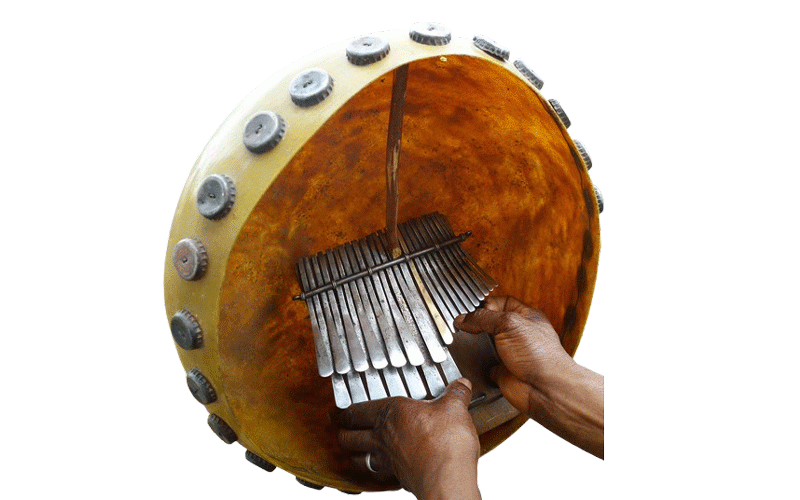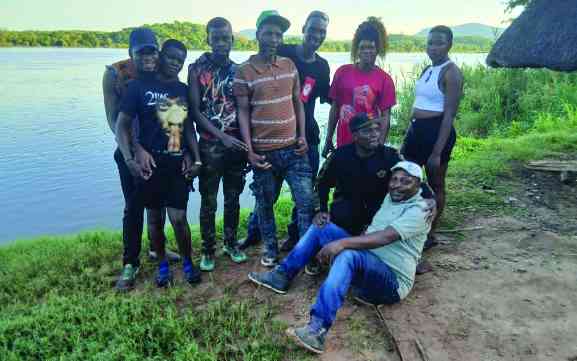
In the soft clinking of mbira keys lies a world of memory, prayer, and resistance.
To many Zimbabweans, the mbira is not merely an instrument, but a bridge between the living and the ancestors, between humanity and the land, between past traditions and present struggles.
As climate change unsettles the rhythms of life with erratic rains, prolonged droughts, and environmental loss, the mbira is finding a new resonance: as a cultural voice for climate advocacy, resilience, and environmental justice.
Ethnomusicologist Paul Berliner, in his seminal work The Soul of Mbira (1993), describes the instrument as inseparable from the spiritual and ecological life of the Shona people.
Traditionally, mbira music accompanied ceremonies such as mukwerera (rain-making rituals) and mapira (harvest festivals).
These gatherings weren’t only spiritual they were ecological interventions.
Communities came together to pray for rain, give thanks for harvests, and reaffirm their duty to live in harmony with the land.
The mbira was the pulse of these ceremonies, its cyclical melodies embodying the belief that nature’s rhythms must be respected and sustained.
- Edutainment mix: Mbira: Ancient sounds for a planet in crisis
- Mbira: Ancient sounds for a planet in crisis
Keep Reading
In this sense, every key plucked was a reminder of interdependence: The ancestors, the people, and the earth itself were bound together in one continuum.
Today, this ancient instrument is being repurposed for modern advocacy.
Musicians and cultural activists are weaving environmental messages into their mbira compositions, turning performance spaces into platforms for awareness.
The late Mbuya Stella Chiweshe, often hailed as the “Queen of Mbira,” spoke of the instrument’s power to heal and reconnect people to their environment.
Younger artists like Hope Masike have extended this vision, fusing mbira with jazz and Afro-pop while writing lyrics that critique environmental neglect and call for sustainable futures.
Musicologist Thomas Turino has argued that mbira performance is a “participatory act,” one that blurs the lines between performer and audience.
In climate advocacy, this participatory element is crucial: the music draws people into collective reflection, urging them not only to listen but also to act.
Even today, mukwerera ceremonies highlight the deep ecological wisdom embedded in mbira traditions.
Communities gather to appeal for rain, accompanied by mbira music, beer offerings, and ritual dances. Though spiritual in intent, these rituals double as climate education.
They underscore how human survival is tied to soil, rain, rivers, and forests knowledge often lost in technocratic climate debates.
In this way, the mbira speaks a language of environmental justice, grounding global concerns like biodiversity loss and deforestation in local lived realities.
When the mbira is played in community festivals against river pollution or deforestation, it frames climate change not as an abstract scientific problem but as a cultural crisis of survival and identity.
Climate change is also a crisis of trauma.
Communities across Zimbabwe and the wider Global South face not only material loss but also psychic wounds from displacement, hunger, and uncertainty.
The mbira’s trance-like, meditative sound has long been associated with healing and resilience.
As Berliner notes, mbira music induces states of collective reflection and spiritual calm, fostering solidarity in the face of hardship.
In modern terms, this is psychosocial resilience—an essential but often overlooked aspect of surviving the climate crisis.
Environmental scholars increasingly stress that climate advocacy must not erase indigenous heritage.
The mbira demonstrates why. Its traditions encourage the conservation of sacred groves, protect certain tree species used to build resonators, and embed ecological ethics into everyday cultural practice.
Where global policy frameworks often frame climate action in terms of carbon and finance, the mbira reframes it as a question of heritage, justice, and continuity.
It tells us that sustainability is not only about technology but also about identit about protecting the cultural and spiritual ties that bind people to their environments.
The mbira is more than a sound of the past; it is a voice for the future.
In the age of climate change, its melodies offer both warning and hope: a warning that breaking with nature’s rhythms invites catastrophe, and hope that ancestral wisdom can guide us toward resilience.
As climate activists push for justice on global stages, the mbira reminds us that local languages of advocacy matter too. In its shimmering notes, communities hear the echoes of rain, the whisper of forests, and the call of ancestors. And perhaps, in listening, the world may learn that environmental justice must also be cultural justice.
- Raymond Millagre Langa is a Zimbabwean musician, poet, and cultural activist known for blending traditional musical elements with contemporary storytelling to address social issues. He is also an independent researcher and founder of Indebo Edutainment, using his artistry to promote cultural heritage, education, and community engagement.











